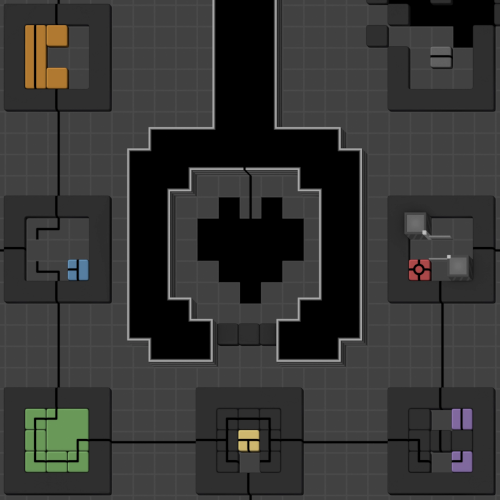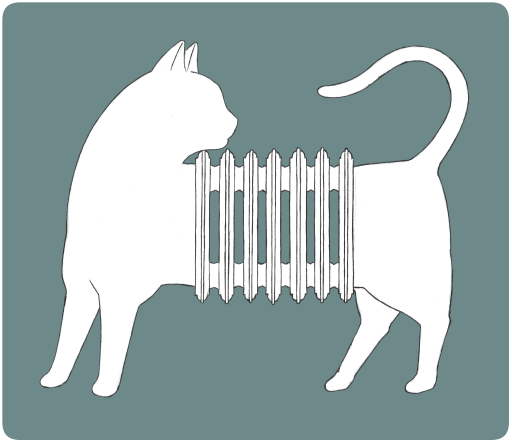A few thoughts on the 0PLAYER game

You can trace the birth of puzzle video games as an extension of paper puzzle games and the line-tracing mechanic in The Witness (which is worth noting was not part of the original core idea of the game) was certainly taken from paper puzzle games.
With 0PLAYER, I feel that the whole process has come full circle and it also made clear in my mind why I have been feeling less and less compelled by puzzle games as time goes by. The thousands of PuzzleScript and non-PuzzleScript games that have sprung up in recent years can always be traced back to Stephen’s Sausage Roll (even games that predate its 2016 release).
Once you have played your Stephen’s Sausage Roll you have played them all: they don’t get better than that and they also don’t get far qualitatively. For PuzzleScript games in particular, this feels especially relevant in light of the fact that Increpare (Stephen Lavelle) is the creator of both Stephen’s Sausage Roll and PuzzleScript: wielders of his tools cannot escape the master’s gaze, so to speak.
They are all essentially games about puzzles and that’s why I have to leave out Braid and The Witness, which are not about puzzles but use the puzzle language to talk about something else completely. In the standard way of people doing their standard thing, only the superficial parts of Braid and The Witness were incorporated into public awareness. That’s why after so many years I am still fond of the flash game “One & One Story” by Mattia Traverso and I still think it’s the best italian video game to date (sadly): it captures more broadly the overall way of communicating through video games presented in Braid and it translates it into a slightly different domain, which is far beyond what most people did.
Stealing Braid’s own words, “when the cinema closes and most of the audience strolls down the plaza to the south, Tim goes north”: in the 17 years (yikes, what have I been doing all this time?) since its release, quite a few people have taken up the puzzle game language and developed it for puzzles’ sake; as if taking up the language of poetry everyone just worked on increasingly complex rhyming schemes while keeping the topic spasmodically fixated on what you ate for breakfast.
Don’t get me wrong, Stephen’s Sausage Roll is a pinnacle of technical game design and the world is a better place for it but, at the same time, it’s also a parlor trick that you can do only once: the second time it’s already stale.
That’s why everyone proceeded to make their own version a thousand times over.
Back to 0PLAYER, the reason why it stirs me so much even if I haven’t “played” it and I don’t intend to do so, is because it demonstrates that the process of video game puzzle making has rarefied itself to the point of disappearing.
A cardinal virtue of puzzle games is that of being legible in the sense that once you know the rules of the game you can play a level entirely in your head and only cursorily input the solution once you know it’s the right one. The other staple of puzzle video games is that of rule deduction, figuring out a mental model of the game world starting from the player’s interactions with the game. By magistrally ping-ponging back and forth between these two concepts Stephen’s Sausage Roll achieves peaks of design greatness where the player is constantly re-evaluating her actual capabilities inside the world while being presented with koan-like puzzles.
And I feel the tortuous difficulty, this sense of impossibility, is the third pole that keeps the whole structure afloat: that is why I was left with a bad taste in my mouth by games like Patrick’s Parabox, a feeling of disappointment and betrayal. What is the point of a cool and unexpected behaviour if when I see the puzzle that should trigger my understanding I can almost immediately say: Well, it’s probably that? If a puzzle does not feel impossible and I don’t have to progress via careful use of the scientific method, formulating hypothesis and testing them out, what is the actual reason for having a video game? If I can infer and run the whole machine inside my brain, what is the point of “playing”?
0PLAYER answers the question brilliantly by engraving a “none” onto the puzzle game tombstone.
Note that here Braid and The Witness actually do much more and keep the chain going: X is impossible because of Y, which implies Z, where Z is an actual useful consideration about the world we live in.
Since I still haven’t said it, it might be worth explaining that 0PLAYER is not a video game. It’s just a picture of the world map of a single-level imaginary puzzle game. Mechanics are simple and intuitive enough that you can pick them up by just looking at the puzzles and try to play the game in your head. The fact that you can jump from puzzle to puzzle by virtue of eye movement helps you form a complete understanding of the ruleset, which must satisfy all puzzles and contradict none. And there certainly are puzzles that look impossible, that force you to reconsider your working knowledge of the ruleset to add exceptions and loopholes.
So what does this all mean? What if at the pinnacle of puzzle video game design sophistication the final product is a paper puzzle? I don’t necessarily have a definitive answer to the questions I throw around (I would be an idiot otherwise), but I feel that the whole exercise has grown to become evidently masturbatory in nature.
Which sounds really stupid said by someone who essentially created two sokoban games, but in my defense I can say that my puzzle design skills are trash (which in the context of this argument seems like a virtue) and, even if it doesn’t look like it, I always worked with the ghost of Jonathan Blow in my mind, wanting to communicate more than just the bare video game world mechanics to the player. Fingers vaguely pointing toward the moon.
To summarize, both because I feel like I have been rambling and because my time is running out and I have to go do other stuff, while I don’t give even the slightest amount of fuck about playing 0PLAYER I am really fond of what it communicates by virtue of simply existing. A puzzle video game to end them all. We have developed a beautiful video game prose, maybe it’s time to start using it to actually say something of value, shall we?
 caprospace
caprospace